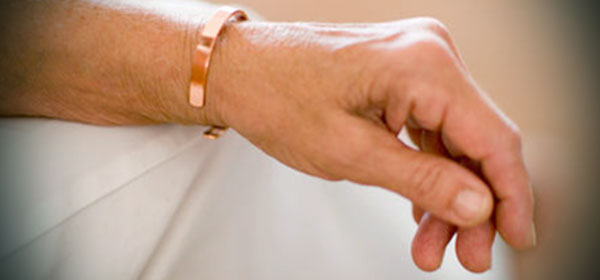Many people say copper wristbands help ease the aches and pains of stiff and sore joints, but what does the science say?
While the anecdotal evidence is strong and many pharmacies stock copper bracelets for this reason, there is little scientific evidence to prove that they have any effect.
The most comprehensive study into the effects of copper bracelets on the pain and inflammation caused by arthritis was conducted back in 2013.
For the purposes of that study, a group of arthritis sufferers was divided into three groups. One group wore copper bracelets, a second group wore magnetic bracelets, and a third group wore a placebo bracelet with neither copper nor magnetic influences. The participants were not told what bracelet they were given.
Each week, scientists checked the participants for signs of trouble in their joints. They noted any swelling, redness or pain, and also ran weekly blood tests. The participants answered questions about any pain they had. Researchers also considered participants’ medications and level of disease activity.
If the bracelets had provided even a 20 per cent clinical improvement in pain ratings, the study would have discovered it; however, it did not.
The author of the study, Dr Stewart Richmond, said: “It is a shame that these devices don’t seem to have any genuine benefit. They are so simple and generally easy to use.
“People who suffer with rheumatoid arthritis may be better off saving their money, or spending it on other complementary interventions, such as dietary fish oils, for example, which have far better evidence of effectiveness.”
As well as fish oils, other complimentary remedies that may help include:
- glucosamine and chondroitin
- boswellia
- aloe vera
- cat’s claw
- eucalyptus
- cinnamon
Have you ever worn a copper bracelet to treat arthritis? Did it work for you?
Read more at WebMD
Related articles:
Arthritis linked to lung disease
Five ways to relieve arthritis pain
Could vitamin D ease arthritis?
This article contains general information about health issues and is not advice. For health advice, consult your medical practitioner.

